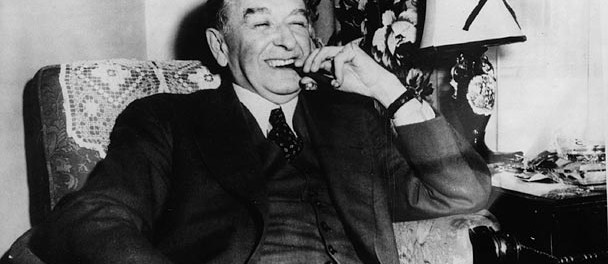1956: Bourassa Departs and Duplessis Marches On & Other Quebec Curios
Part of “Shadows and Revolution”, 1900-1960
In 1956, while the big movers and shakers of the next generation such as Jean Lesage and René Lévesque were already in politics or moving towards that goal, Robert Bourassa’s story was only beginning. Recognized as a very high achieving student in the Université de Montréal’s law faculty, he earned the Governor General’s Medal that same year for coming first in his class. Newly admitted to the Bar of Québec, he departed the province shortly after to study economics and political science, first at Harvard, then at Oxford. One of the events that he would have been able to see shortly before his departure was Maurice Duplessis’ fourth and final win as Premier of Québec.
Sixty-six-year-old Maurice Duplessis ran a campaign against the Liberal Party, whose leader, Georges-Émile Lapalme, had already taken on Duplessis in the last election and had even managed to knock some seats off of Duplessis’ majority. Though they won no seats, the Parti ouvrier progressiste, an openly Communist political party, managed to get about sixty-five hundred votes, a result that was no doubt met with dismay with the openly anti-Communist state leader. Among the other parties were the Parti social démocratique du Québec, headed by Thérèse Casgrain, who was one of the women that swayed Adélard Godbout into giving the right to vote for women for provincial elections. Duplessis ran his campaign on his stability as Québec’s one and only leader for the past twelve years, demolishing the Liberals’ politics and playing on his accomplishments in the education and agricultural sector as well as his accomplishments with the provincial income tax and the subsequent report that came out of it. Duplessis, the propaganda stated, was a hero, not a traitor to the people of Québec.
Running under the political slogan that Duplessis’ party was the party of progress, he managed to gather the support for the fourth consecutive time, taking four seats that had been Liberal during the last election and gaining about 52% of the popular vote of those who voted. The repartition of seats, however, showed how lacking they Assemblée nationale was in terms of representing the popular vote: Duplessis had 72 seats, while the Liberals had 20, with former boxer Frank Hanley gaining one seat as an independent.
The election would be Duplessis’ last. Georges-Émile Lapalme, though one of the fathers of Québec’s eventual modernisation, would never become Premier, stepping aside as the leader of the Liberal Party in favour of the young lawyer Jean Lesage. The Québec that Robert Bourassa would come back to in 1960, a professor for the time being, was a Québec willing for change, and this time, the people would have the change they wanted.






